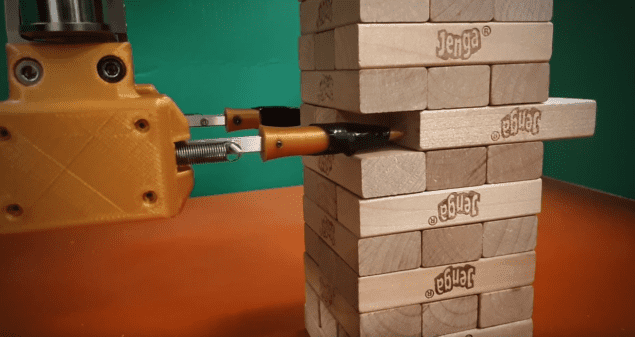
Some time ago, we published an April fool’s joke story about a new quantum computer that can play Jenga. Now, life has imitated art (sort of) because scientists at the Massachusetts Institute of Technology have made a robot that can play the game almost as well as a human player. A new type of machine-learning method enables the robot to adapt its approach not only with help from visual clues, but also from its physical interaction with the stacked blocks.
The researchers describe their findings in Science Robotics and hope their method could one day lead to robots assembling phones and other small-part devices.
Physics is home to some complicated and abstract ideas. Conveying them to others can be a subtle art. And so many physicists have put their creativity to the task by authoring their own graphic novels. This way they hope people can explore complex ideas through illustration and narrative.
This genre of comics is growing in popularity and boasts titles such as “Max the Demon vs. Entropy of Doom” by Assa Auerbach and Richard Codor, and “The Dialogues” by Clifford Johnson.
Johnson recently made an illustration of the past, present and future of a typical physics lab, commissioned for the 30th anniversary of Physics World.
This coming spring, during the UN’s International Year of the Periodic Table, there will be a chemistry-themed festival in the South Kensington district of London. The Science Museum will host many family-friendly activities including weekend chem-mystery workshops. 150 years to the day from when Dmitri Mendeleev’s periodic table was announced in 1869, the museum is to uncover a new free display of over 50 elements once owned by Napoleon’s nephew.
During the festival, there will also be a couple of one-day conferences jointly hosted by the Science Museum and Imperial College London. The first will be on the 11th of April and is to focus on the history of people and institutions that made chemistry part of the intellectual and public life in South Kensington. The following day, the Chemistry Futures 2040 conference will cover the newest breakthroughs in the field with some speculation as to how it might evolve.



